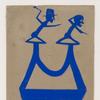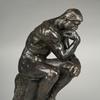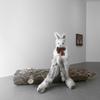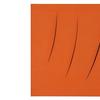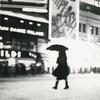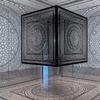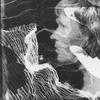BAMPFA Organizes First Museum Survey in 60 Years of Works by Charles Howard
- BERKELEY, California
- /
- April 10, 2017
Charles Howard: A Margin of Chaos Illuminates Creative Trajectory and Bay Area Connections of Significant Abstract Artist
This summer, the UC Berkeley Art Museum and Pacific Film Archive (BAMPFA) will mount the first museum exhibition in over six decades to explore the legacy of Charles Howard, a pivotal figure in the Surrealist and abstract art movements of the mid-twentieth century. Charles Howard: A Margin of Chaos will showcase more than 50 works by the artist, drawn from the collections of many esteemed museums across the country, that chart his affiliations with Surrealism and abstraction, as well as his previously underexplored roots in the Bay Area and its influence on his work. The exhibition will be on view at BAMPFA from June 21 through October 1 and will be accompanied by the first ever monographic publication on Howard, which includes new scholarship on this important and underrecognized artist.
A Berkeley native whose father, the architect John Galen Howard, designed the UC Berkeley campus, Charles Howard grew up immersed in the Bay Area’s vibrant cultural community among a family of artists during the early 1900s. After graduating from UC Berkeley with a degree in journalism, Howard turned to painting following a formative encounter with the work of the Venetian Renaissance artist Giorgione—a discovery he described in his 1946 essay “What Concerns Me,” which will appear in the exhibition catalog. Howard moved to London in the 1930s and became associated with the British Surrealists of the prewar period. He returned at the outset of World War II to the Bay Area, where he played a key role in introducing developments in European modernism to the San Francisco art community. Many of Howard’s important paintings from this period will be included in the exhibition, which will also showcase rarely exhibited ephemera such as propaganda posters that he created for the US government during the war.
Howard’s return to the Bay Area also marked a continuing progression in the artist’s work from Surrealism to abstraction, an aesthetic that was inspired in part by the Liberty Ships he helped to build while working at a naval shipyard in Sausalito during the war. The exhibition will include more than 40 works from this transitional period, including several that were featured in an exhibition at the California Palace of the Legion of Honor in 1946—his only museum retrospective in the United States to date. Also included in the BAMPFA exhibition is Aimant (1949), one of Howard’s significant postwar paintings, which was acquired by the institution in 2016.
“We are thrilled to reanimate the legacy of Charles Howard with this groundbreaking exhibition, which advances BAMPFA’s longstanding history of highlighting some of the Bay Area’s most important artistic figures.” said BAMPFA Director Lawrence Rinder. “As a globally recognized institution with deep ties to our local community, BAMPFA is a fitting setting to rediscover the Bay Area connections that shaped the trajectory of an artist whose work has been celebrated in both England and the United States.”
“Throughout his distinguished career, Charles Howard stood at the center of some of the most important artistic intersections of his lifetime, from his movement between Surrealism and abstraction to his prominent role as an intermediary between European and American art developments,” said the exhibition’s curator Apsara DiQuinzio, curator of modern and contemporary art and Phyllis C. Wattis MATRIX curator at BAMPFA. “More than sixty years after his last institutional survey, this exhibition offers a historic opportunity to revisit the work of an important Bay Area artist, who is long overdue for recognition within the American Modernist canon.”
In conjunction with the exhibition, DiQuinzio has edited the most extensive catalog on the artist to date, which will provide additional context on Charles Howard’s work and life. The 128-page, fully illustrated catalog will include essays by DiQuinzio, UC Berkeley Art History Professor Lauren Kroiz, and an introduction by the contemporary artist Robert Gober, and will be distributed by D.A.P. / Distributed Art Publishers.

